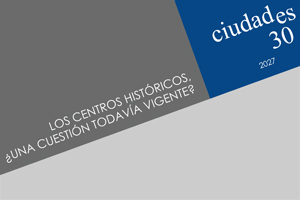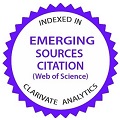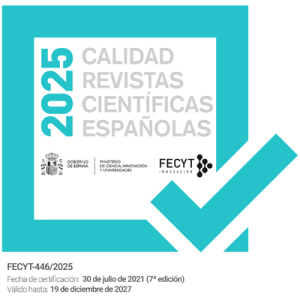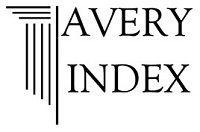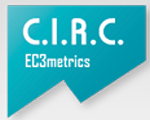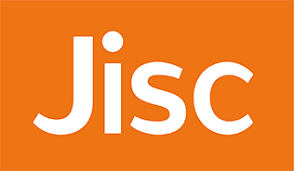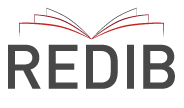Aims and scope
Ciudades is a scientific journal of annual periodicity, founded in 1993 and edited by the Instituto Universitario de Urbanística of the University of Valladolid (Spain), whose object is urbanism in a broad sense and that addresses the academic world as well as the citizenship interested in urban and territorial issues from various disciplines.
The journal was born within the area of knowledge of Urban and Regional Planning with the vocation to promote the debate on the city and with the perspective of a better knowledge of urban phenomena. It refers to both theoretical and propositional approaches and to their interrelation with other disciplines such as architecture, engineering, geography, sociology, history, political science, anthropology, economics and ecology.
The complexities and contradictions affecting cities are always on debate. Professionals and scholars of urban planning need to know urban and territorial phenomena and benefit from the promotion of a rooted culture that is sometimes little known or ignored, and yet constantly evolving.
Ciudades proposes the study of cities and urban planning with a critical sense, from a theoretical approach and with a transdisciplinary intention, with the conviction of the need for planning and with the idea that urban planning must be a public function to serve everybody. Therefore, it aims to be a mean of scientific dissemination of articles on research and proposals for intervention that address, critically, all those issues related to urban knowledge and planning, which affect cities, territories and landscapes.
Indexing
ESCI is a database of the Web of Science Core Collection. It includes all the journals that in practice are being evaluated to enter to SCI, SSCI or A&HCI.
SCOPUS is a database managed by Elsevier that is linked to various impact metrics, such as CiteScore.
The Scimago Journal & Country Rank (SJR) is an impact metric linked to SCOPUS. In its more recent edition (2024), Ciudades is included in the areas of “Conservation” (Q3), “Urban Studies” (Q3) and “Geography, Planning and Development” (Q4).
The Spanish Foundation for Science and Technology (FECyT) awards a seal of quality that recognises the editorial and scientific quality of the journals that have passed an evaluation process. Ciudades was awarded the seal in 2021 and has renewed it since then.
Avery is a specialized database managed by the Columbia University Library that contains references on architecture, archeology, urban planning, landscape, etc. from journals around the world.
ERIH PLus is a norwegian Index of Humanities and Social Sciences that works for the visibility of contents at European level.
Latindex is a regional information system on journals published in the countries of Latin America, the Caribbean, Spain and Portugal. Ciudades is included both in its directory and in the Catalogue 2.0, composed of the journals with the highest quality standards according to the Latindex methodology.
DOAJ is an online directory that indexes and provides access to high quality, open access, peer-reviewed journals.
Google Scholar is a Google search engine focused and specialized in the search of content and scientific-academic literature. According to its data, the papers that have been published in Ciudades exceed 3,000 citations, with an H-index of 26.
ANVUR (Agenzia Nazionale di Valutazione del Sistema Universitario e della Ricerca) is the agency responsible for assessing the quality of research in Italy. Among other things, it maintains a ranking of “scientific” journals in which Ciudades is included (area 08, period 2023-2025).
Dialnet is a dissemination portal of Hispanic scientific production, open access, which contains the indices of scientific and humanistic magazines in Spain, Portugal and Latin America, also including books (monographs), doctoral theses, tributes and other documents.
MIAR is a database of the University of Barcelona that analyses the presence of journals in databases and multidisciplinary directories.
CIRC (Integrated Classification of Scientific Journals) is a classification of Social and Human Science journals by the EC3metrics group, based on other evaluation products. Ciudades is currently included in group B in the Social Sciences classification.
Open Policy Finder is a platform that allows users to consult the open access and self-archiving policies of numerous journals around the world.
Dulcinea is a project whose objective is identifying the editorial policies of Spanish journals in relation to the access to their files, usage rights and publishing licenses.
ROAD is a directory of open access scholarly resources.
Información y Documentación de la Ciencia en España (ÍnDICEs-CSIC) is a multidisciplinary bibliographic resource that mainly collects and disseminates research articles published in Spanish scientific journals, which was active until 2022.
REDIB is a platform for the aggregation of scientific and academic content in electronic format produced in the Ibero-American context, which was active until 2022.
URBADOC is a database of more than 700,000 bibliographical references on urban planning and land management, gathered by a group of European producers in order to promote international exchange and the dissemination of information on the topics mentioned.
Ulrich’s Web is a multidisciplinary database containing complete references of sale and / or missing periodicals publications.
Crossref is an oficial Digital Object Identifier (DOI) Registration Agency of the International DOI Foundation. It provides information and access to contents thanks to papers and journals metadata. It also allows to generate bibliographic references in several formats.
Editorial policy
Edition, open access and gratuity
Ciudades is edited by the Instituto Universitario de Urbanística of the University of Valladolid as electronic journal (ISSN-E 2445-3943) and, with a limited edition with institutional purposes, as paper journal (ISSN 1133-6579). Ediciones Universidad de Valladolid is a technical co-editor, as manager of the journals’ platform of the University of Valladolid (Revistas UVa).
Ciudades is a non-profit publication that adheres to the principles of the Open Access movement. It enables free and immediate access to its content in order to make research freely available to the public, thus fostering greater global knowledge sharing. In addition, the submission, review and publication of articles are completely free of charge for authors.
Copyright policy
All contents published in Ciudades are under a Creative Commons Attribution 4.0 International License (CC BY 4.0).
![]() Attribution: any use of the work authorized by the license will be required to acknowledge authorship.
Attribution: any use of the work authorized by the license will be required to acknowledge authorship.
Authors continue to own their work and may republish their articles by other means without having to seek permission, as long as they state that the work was originally published in Ciudades.
Assignment of DOI, preservation of digital files and prevention of plagiarism
A DOI (Digital Object Identifier) will be assigned to all articles published in Ciudades.
For their digital preservation, the articles will be housed on the journals’ platform (Revistas UVa) and the institutional repository (UVaDOC) of the University of Valladolid, as well as on many other platforms and repositories outside the University of Valladolid, such as Dialnet. They will also be archived by the Servicio de las Tecnologías de la Información y las Comunicaciones de la Universidad de Valladolid (STIC).
The journal has a plagiarism prevention tool provided by the Servicio de las Tecnologías de la Información y las Comunicaciones de la Universidad de Valladolid (STIC). The tool StrikePlagiarism is currently used.
Privacy and data protection statement
The names and email addresses entered in this journal site will be used exclusively for the purposes stated by this journal (namely, those relating the processing of manuscripts submitted for publication, their evaluating process, or the distribution of information concerning calls for papers and the published works) and will not be made available for any other purpose or to any other party.
Under REGULATION (EU) 2016/679 OF THE EUROPEAN PARLIAMENT AND OF THE COUNCIL of 27 April 2016 on the protection of natural persons with regard to the processing of personal data and on the free movement of such data, and repealing Directive 95/46/EC (General Data Protection Regulation), users can exercise their rights to request access to, and to rectification and erasure (right to be forgotten) of their personal information, restriction of and/or objection to data processing and portability, as well as not to transfer and/or share your information with third parties individually.
Editorial structure
The composition and functions of the three bodies that constitute the editorial structure of Ciudades are set out in its internal regulations (Spanish), approved by the Council of the Instituto Universitario de Urbanística in its session of 12 June 2020.
Director:
- Luis Santos y Ganges. Geographer, Associate Professor.
Secretary:
- Federico Camerin. Urbanist, PhD Researcher “Ramón y Cajal”.
Editorial assistance:
- Sara Pedroso Emperador. Research Support Technician.
- Alberto Morala Sanz. Technical Specialist.
Founder and Honorary Director:
- Alfonso Álvarez Mora. Architect, Honorary Emeritus Professor of the University of Valladolid.
Contact
Luis Santos y Ganges (Director)
revista.ciudades@uva.es
+34983184471
Federico Camerin (Secretary)
revista.ciudades@uva.es
+34983184471


